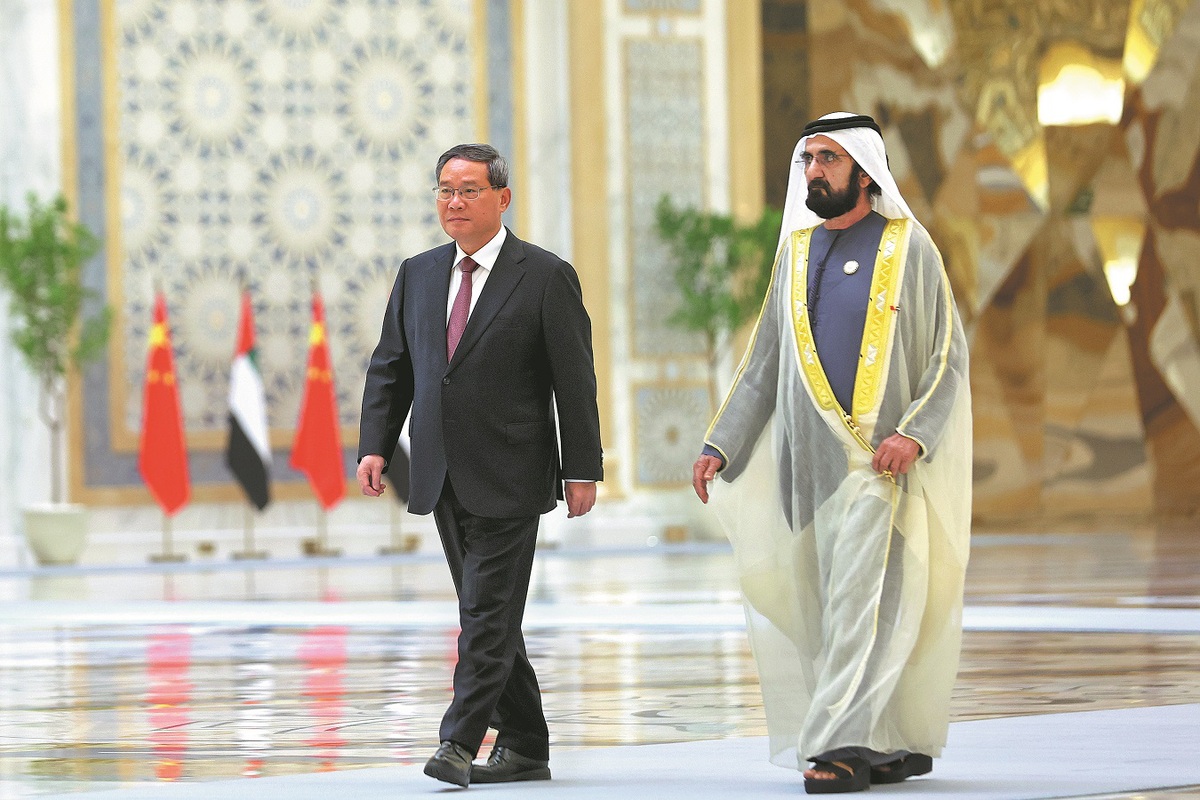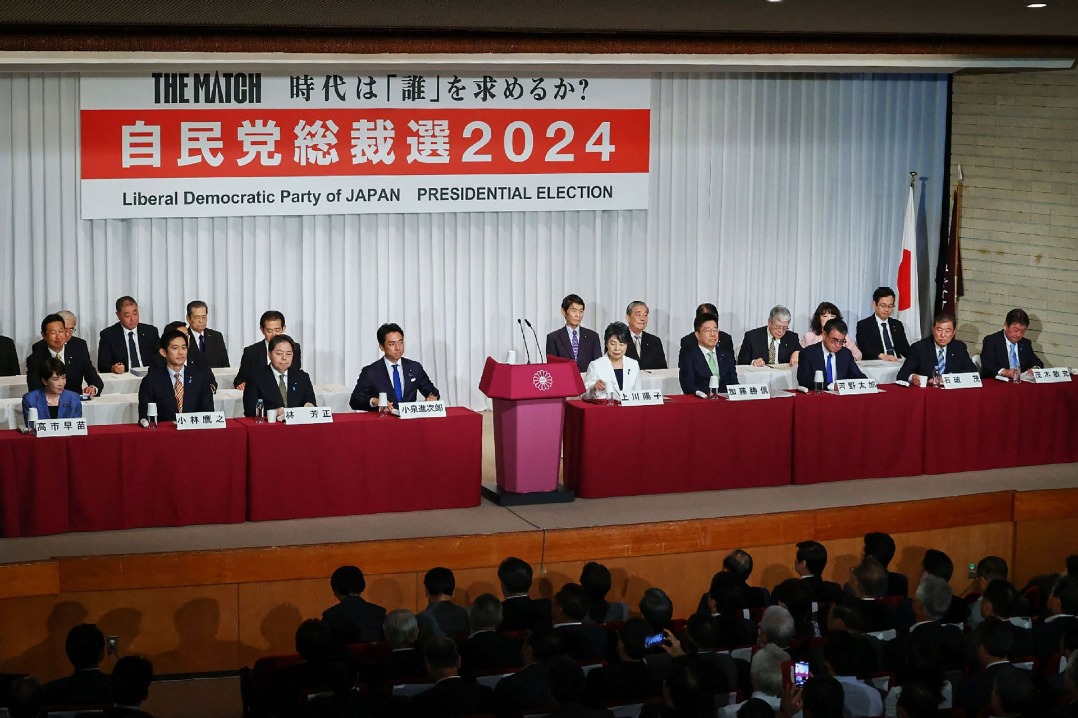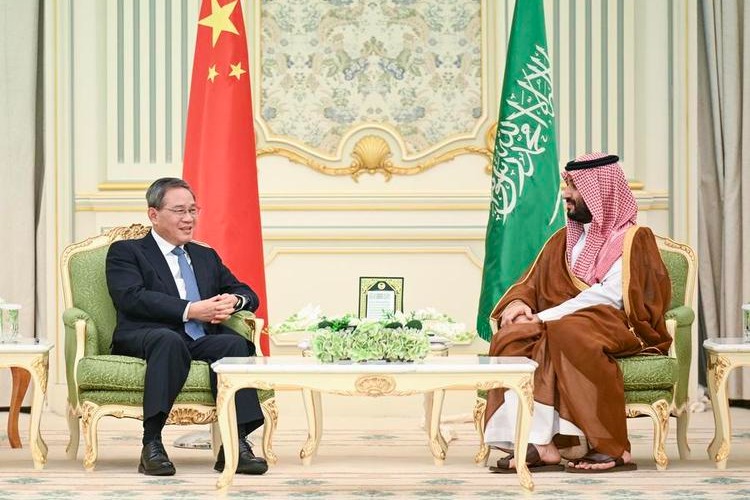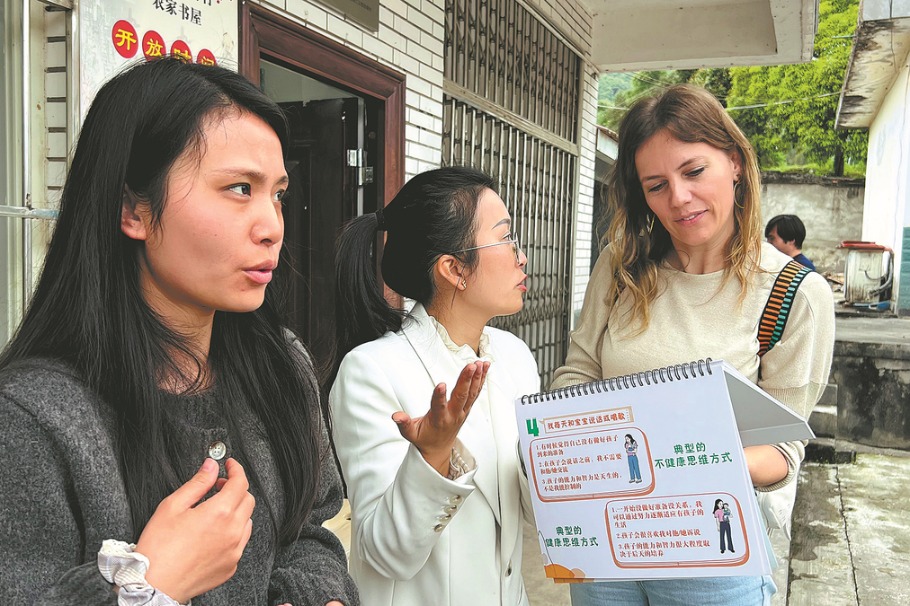Li vows to deepen trade ties with UAE
Cooperation in new energy, electric vehicles, digital economy highlighted


Premier Li Qiang has stressed China's readiness to deepen trade ties with the United Arab Emirates, calling for heightened bilateral cooperation in key sectors such as new energy, electric vehicles and the digital economy, and reinforced collaboration in investment and traditional sectors like oil and gas.
Li made the remarks on Thursday when meeting with UAE President Sheikh Mohamed bin Zayed Al Nahyan in Abu Dhabi, capital of the UAE, the second stop of his four-day Middle East tour, which started on Tuesday.
The visit came as China-UAE relations have shown robust strength in recent years, with the two nations' cooperation leading Beijing's engagement with partners in the region. China has been the UAE's largest trading partner for years, with nonoil trade between the two countries reaching $81 billion in 2023, marking a 4.2 percent increase from the previous year.
Li told the UAE leader that the two sides should give full play to the role of a high-level joint committee to enhance investment cooperation and jointly make a forward-looking layout of emerging industries and future-oriented industries to cultivate more new economic growth points.
It is hoped that the UAE will provide a good business environment for Chinese companies to make investments, he said, adding that China will work with the UAE and other Gulf Cooperation Council countries to promote the early completion of negotiations on the China-GCC free trade agreement.
In July 2004, China and the GCC announced the launch of China-GCC Free Trade Agreement negotiations. So far, the two parties have held 10 rounds of negotiations.
Mohamed lauded the two countries' 40-year-old diplomatic ties, saying that their comprehensive and friendly relationship has reached an unprecedented level and become a model for state-to-state relations.
The UAE adheres to the one-China principle and is willing to be a reliable cooperation partner of China and a strategic partner in high-quality Belt and Road cooperation, he said, vowing to advance practical cooperation in areas such as healthcare and education and to strengthen communication with China in multilateral affairs.
The Chinese premier arrived in Abu Dhabi on Wednesday night after his trip to Riyadh, where he met with Saudi Crown Prince and Prime Minister Mohammed bin Salman Al Saud, and co-chaired the Fourth Meeting of the High-Level Chinese-Saudi Joint Committee with him.
During the meeting, the two sides agreed on efforts to expand cooperation in sectors including trade, investment and energy and promote people-to-people exchanges, in order to push for the greater development of bilateral ties that benefit both peoples. The two nations also signed several bilateral cooperation documents on technical and vocational training, meteorology and other areas.
Li told the Saudi crown prince that China regards the development of relations with Saudi Arabia as a priority in its overall diplomacy, and particularly in its Middle East diplomacy.
He urged the two major developing countries, which share broad common interests, to encourage their enterprises to invest and start businesses in each other's country and jointly safeguard the stability of global industrial and supply chains.
The Saudi crown prince said that Saudi Arabia looks forward to further strengthening high-level exchanges with China, fully utilizing the High-Level Saudi-Chinese Joint Committee mechanism, and better aligning their development strategies.
Saudi Arabia highly appreciates China's just stance on the Palestinian question and is ready to collaborate closely with China on international multilateral affairs, contributing to the maintenance of regional and global peace, security and stability, he said.
Official data showed that Saudi Arabia has been the largest trading partner of China in the Middle East since 2001, while China has been Saudi Arabia's largest trading partner since 2013. Last year, bilateral trade exceeded $107 billion.

































